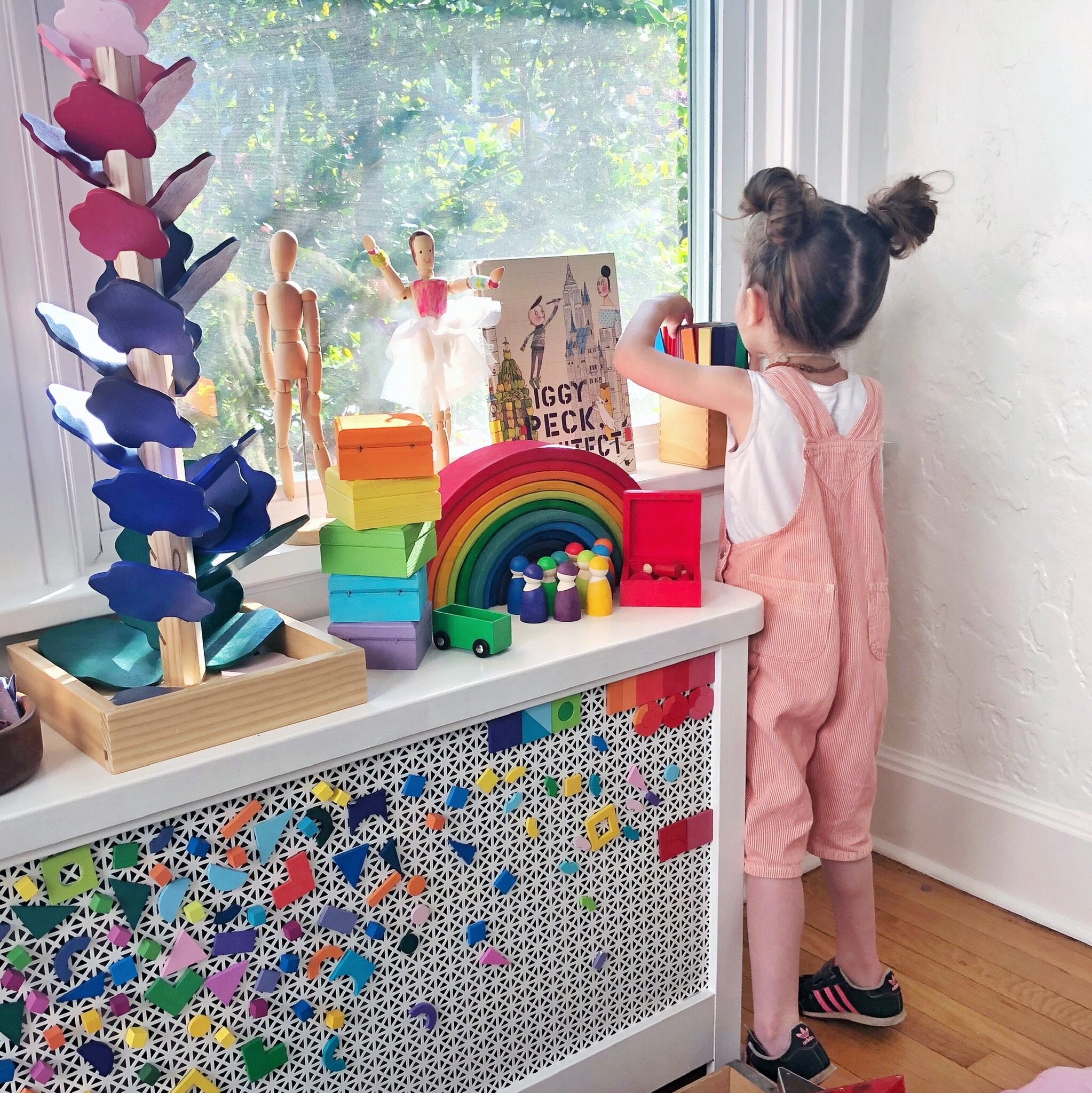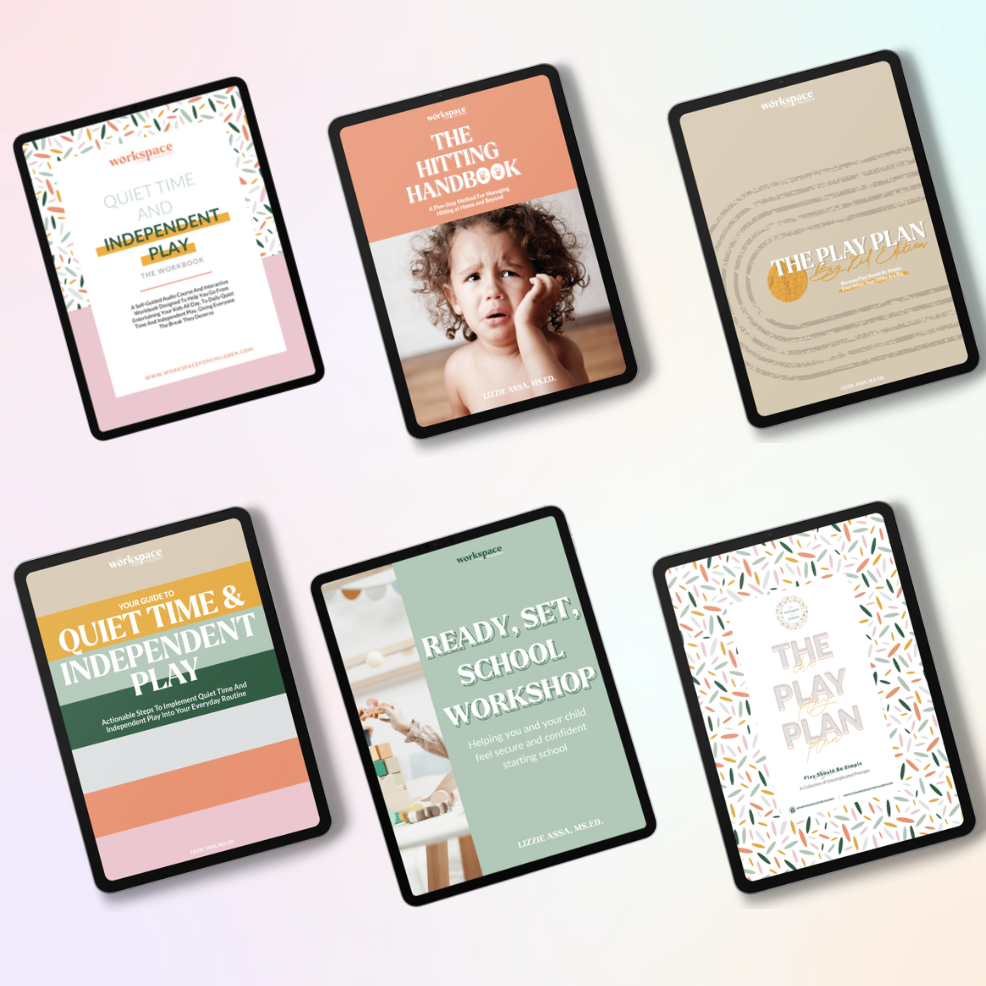One Truth About Back to School That I Wish More People Were Talking About
/It was 9 pm on the first day of school when my husband and I finally got out for our nightly dog walk. I turned to him and said, I feel like my nervous system is on fire and I am so fucking tired that I don’t even care about putting the fire out.
Back-to-school season is not just about cute outfits and teacher gifts- BTW, who invented this and why are parents giving first-day-of-school teacher gifts? Because… No. Just, no.
Back-to-school season is a big transition for children and their families. An untenable period of tiredness, an uptick in tantrums and undesired behaviors, and sleep disruptions or clinginess are to be expected. (tips for managing at the end of the post) Your child is not the only one having after-school meltdowns and the meltdowns do not mean they can’t handle school.
Whether you have a preschooler or a high schooler, the exhaustion is real. For parents, for teachers, and of course, for our children.
Flashback to when my 17-year-old started Kindergarten: Every afternoon I raced to the bus stop, eager to squeeze my boy and hear all about his adventures at school. He'd come off the bus grinning and chatting with friends but the second he landed in my care? Forget it. He was moody, unpredictable, and mean to his sisters and me- This was not my boy.
I worried. I called his teacher. She reported a courteous, engaged, friendly child at school. While I was relieved to hear that he was managing well at school, I was still completely at a loss for how to manage him at home.
A timely conversation with another preschool teacher changed how I approached our afternoons, and how my new Kindergartener adjusted to long days at school.
"Lizzie," she said, "you have to remove any afterschool demands that you can. He is working so hard all day to sit at a desk, eat lunch in a cafeteria, make new friends, and follow new expectations. He can't possibly keep that up all afternoon. Make decompression the goal of his afternoons."
Omg, duh! I am a former preschool teacher myself and had been doling out similar advice to preschool parents in NYC for years, why hadn’t I recognized what my child needed?
I saw an immediate change in behavior after implementing the following:
Instead of playdates at the park, he played solo in the backyard.
Instead of errands and afterschool sports, he came home to play, linger in the bathtub, and build with his blocks.
Instead of expecting him to share with his sisters, I set him up with his own puzzle/ lego set/ snack plate- because he was sharing all day at school, and sometimes you need permission to have everything all to yourself.
Ways You Can Support Your Child After School:
Expect Restraint Collapse And Don’t Take It Personally
As a parent, it is so easy to take anything your child does personally. The after-school restraint collapse is no different. Your child has had a long day. They’ve been working hard to keep their behavior in check and follow new rules. They’ve likely been overstimulated all day by their environment and being around so many other kids. They must let it all out, and you are their safe space. It is okay to set limits on behavior, but you do want to recognize how they are feeling and keep that in mind. Talk about behavior when they are rested, played, and fed.
Have a Nutrient-Dense Snack Ready
In the beginning days of school, your child most likely won’t eat much at lunchtime. Eating and drinking are social in nature, and children tend to just nibble until they are comfortable. (Read more about Ways to make school lunch easier for your newbie) When they get home, your child needs to eat as soon as possible. Prepare for this by being one step ahead and having a healthy snack ready for them as soon as they get home.
An easy way to prepare for this is by having some ready-to-go snacks in the fridge so as soon as you get home it’s there waiting for them.
Need some healthy snack ideas that are quick and easy?
Veggies and pita with hummus for dipping
Apples and peanut butter and mini chocolate chips
Hard-boiled eggs with salt and pepper they can add themselves
Homemade trail mix (don’t forget the m&m’s!)
Meat and cheese on skewers with crackers on the side
Yogurt with toppings on the side (Sprinkles, shredded coconut, crushed graham crackers)
Smoothies
Easy Sensory Play
A great way to help your child decompress is with sensory play. One of my favorite activities to suggest trying in the middle of the afternoon is a bath. It may seem strange to draw a bath mid-day but trust me. Throw in some bubbles and your kid’s favorite toys and let them soak and play. Not only will they love it, but it will help them unwind and you’ll have one less thing to worry about at bedtime.
Another great sensory play option is putting together a toy washing station. This takes less than 5 minutes to set up with items that you most likely already have lying around the house.
Toys That Reflect Their School Experience
Set out a dollhouse and a school bus toy with some little people or animals. They'll dive right into playing school and you can learn a lot about how they interpret their school experience. Don’t be pushy. Let them come to in on their own and choose whether or not to engage. Picture books, drawing materials, and stuffed animals are also great tools for this kind of play.
Do Something To Regulate Yourself
You cannot anchor your child through the transition of back-to-school season unless you are feeling grounded. I kind of hate when “experts” go on about self-care for parents because it feels like another item on the to-do list. Instead, of blabbing about self-care, I’m sharing two of my go-to ways to stay calm when I feel wildly exhausted and untethered.
Loops earplugs dim the noise but allow you to hear and engage with your family. It just kinda takes the edge off. 10/10 Recommend.
I use the Insight Timer app on my phone at least once per day. I’ve been using it off and on for five years. It’s free. I love it.
If you are looking for more support with Back to School for your child under the age of 8, A Parent's Guide To Starting School was created by me, to help you smooth the back-to-school transition for you and your little one. It has It has helped hundreds of families across the globe with strategies that are impactful and easy to implement.
Looking for free support? Head to my website for articles on lunch packing, playdates, and more. Join me on Instagram for daily tips.







Rescuing them from discomfort also robs them of resilience.